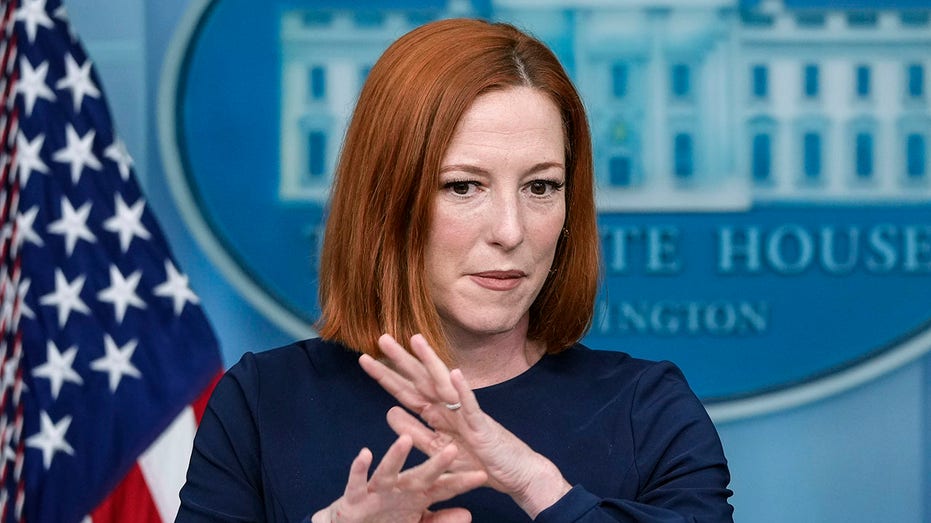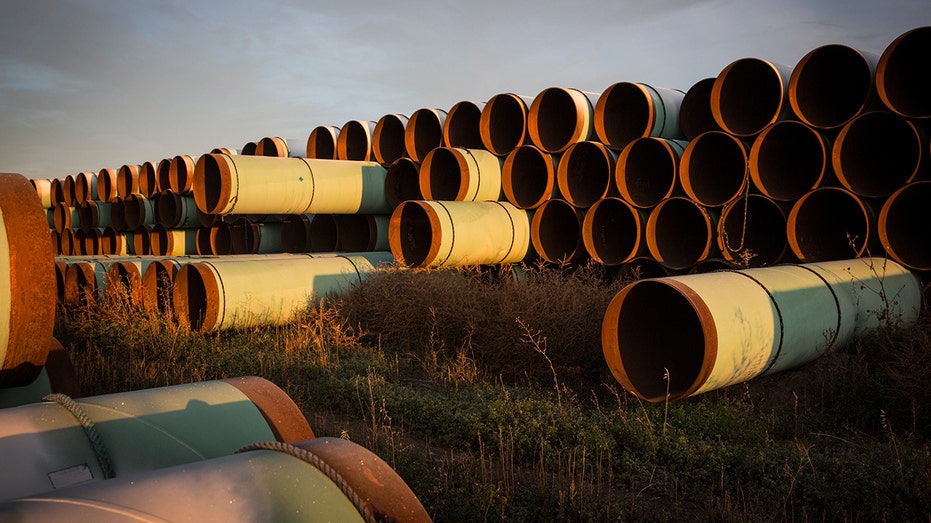Psaki claims Biden administration not slowing domestic oil drilling
The petroleum industry says the administration is hindering energy development during a critical time
Biden administration has crushed oil and gas from day one: Pete Hegseth
Fox News host Pete Hegseth slams Biden's energy policies for increasing the price of gas on ‘Fox Business Tonight.’
White House press secretary Jen Psaki Monday sought to dispute claims that Biden administration's policies are preventing domestic drilling.
Referring to a comment she had made earlier during the White House press briefing that the Biden administration was "going to do everything we can" to reduce the prices at the pump, Fox News' Peter Doocy pressed Psaki to clarify why the administration is asking other countries to pump more oil instead of producing more oil at home.
OIL AND GAS INDUSTRY PREDICTS FRACKING BAN WOULD COST US 7.5M JOBS BY 2022
When Psaki claimed federal policies are not limiting the supplies of oil and gas domestically, Doocy pointed out that Biden issued an executive order halting new oil production at public plants.
Psaki said 90% of leases are on public lands and that there are 9,000 unused drilling permits.
The exchange comes after an assertion she made last week that the energy industry "is literally sitting on stockpiled leases and permits."
Fox Business White House correspondent Edward Lawrence told Psaki during last Friday's White House press briefing that he had reached out to the president and CEO of the American Petroleum Institute (API) about the 9,000 unused lease permits.
RUSSIA INVADES UKRAINE: LIVE UPDATES
Lawrence noted that the group "says that a lot of policies that have been put in place by this administration, including a ban on new development of federal lands and federal waters," are "really hindering American energy development during a critical time."
"Also, he says the royalty fees increasing on drilling discourages investment," Lawrence continued. "So are there any plans to reverse any of these policies to encourage investment?"

White House press secretary Jen Psaki speaks during the daily press briefing at the White House Feb. 22, 2022, in Washington, D.C. (Photo by Drew Angerer/Getty Images)
"I think he may have avoided your question," Psaki retorted. "I mean, because the fact is that onshore alone, as of the start of this year, the industry had more than 9,000 unused approved permits to drill in the United States, and I didn’t hear him speak to that in particular."
Psaki went on to say that of the more than 37 million acres under lease to the oil and gas industry, nearly 60% are currently non-producing.
"Now, obviously, our view on drilling over the long term is different, I would suspect, than the person you spoke to, which is that what overall we need to do here is reduce our dependence on oil," Psaki said.
PSAKI CLAIMS KEYSTONE XL PIPELINE WOULD MAKE NO DIFFERENCE FOR RISING GAS PRICES

Miles of unused pipe, prepared for the proposed Keystone XL pipeline, sit in a lot on Oct. 14, 2014, outside Gascoyne, North Dakota. (Andrew Burton/Getty Images / Getty Images)
In 2020, the API predicted that a ban on fracking and new oil leases would reduce GDP by $7.1 trillion by 2030, cost the economy 7.5 million jobs by 2022 and cause an average household income decline of $5,040. While energy consumption would decline by 12%, energy costs will purportedly increase by 14%, they predicted.
